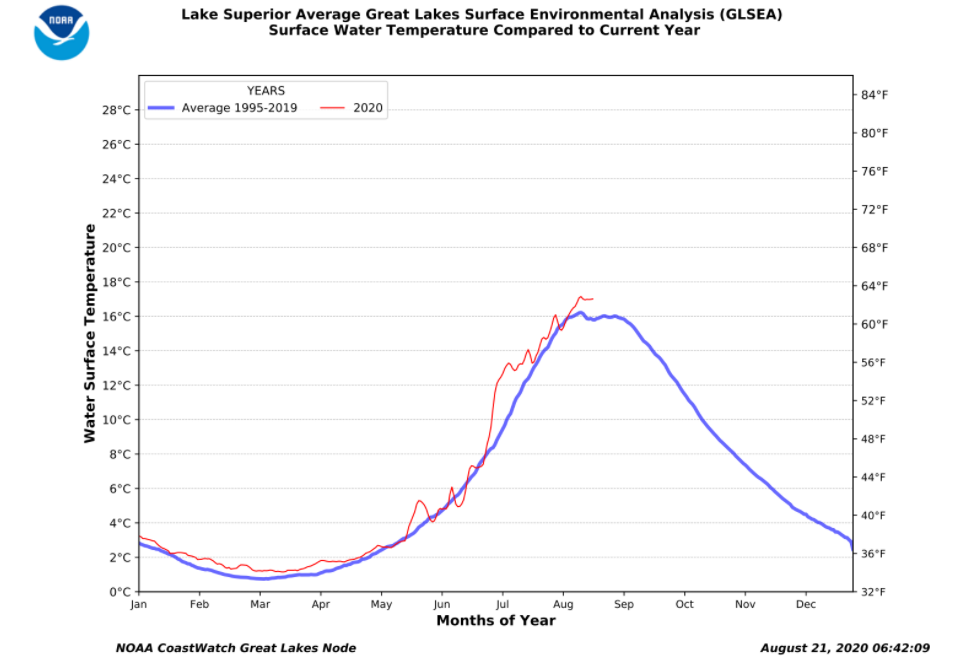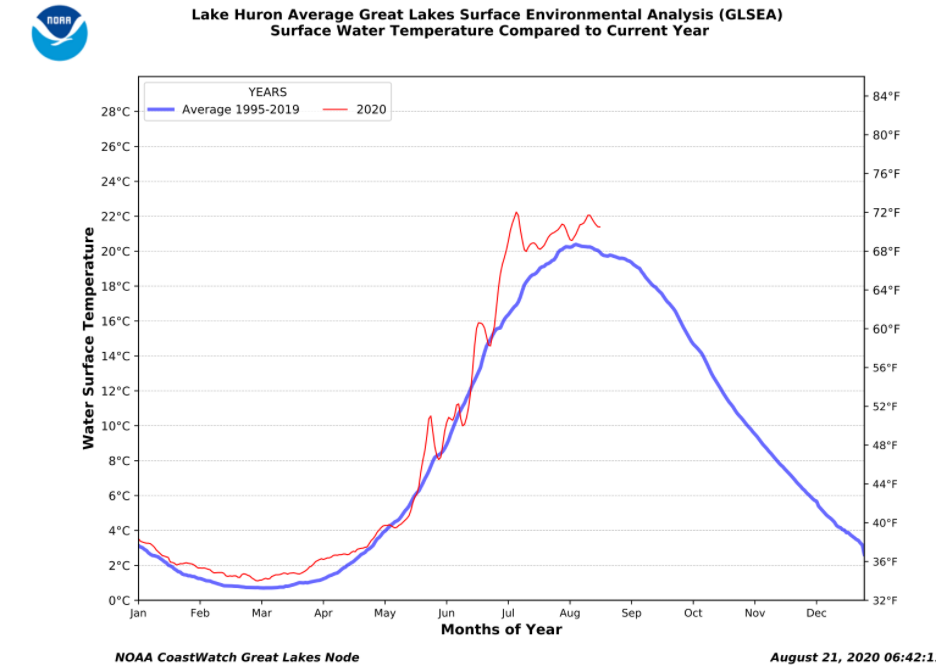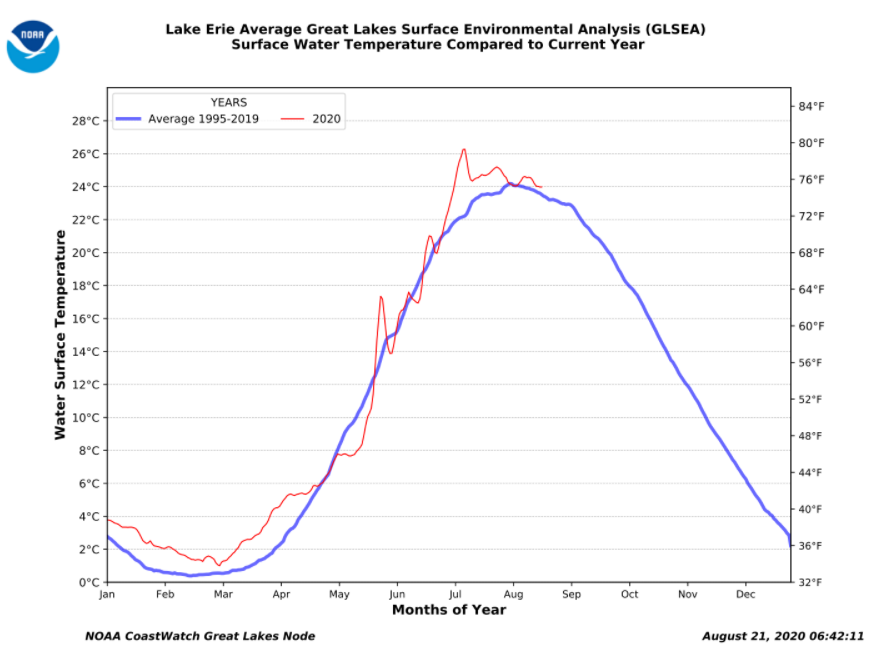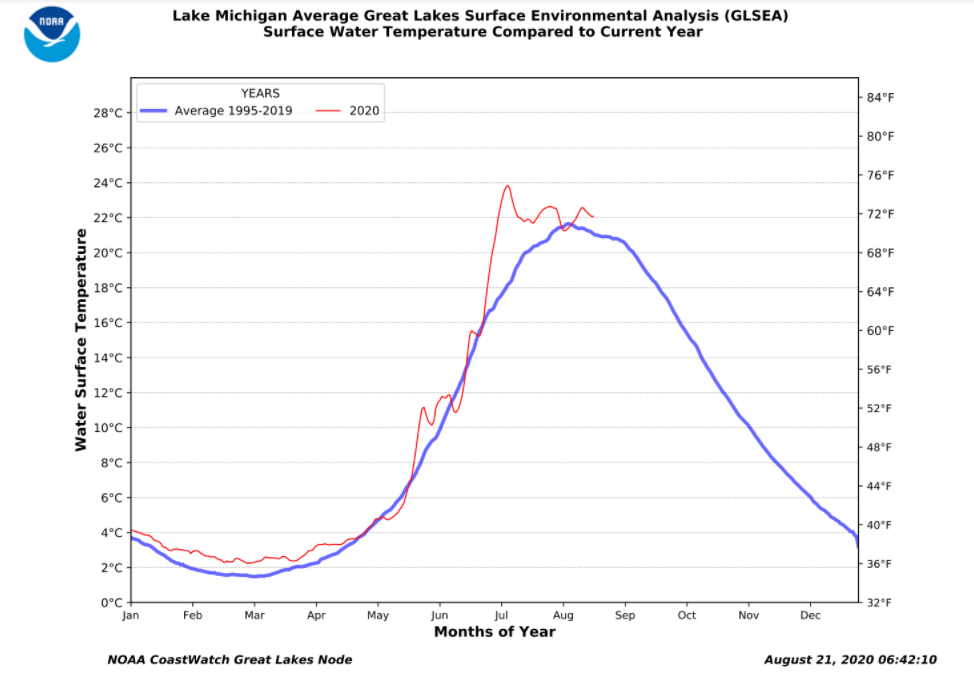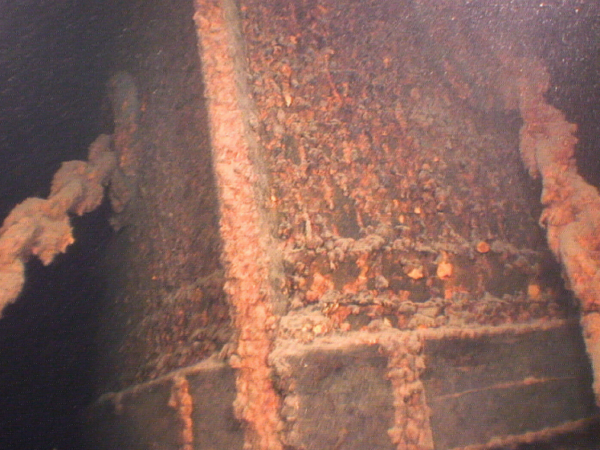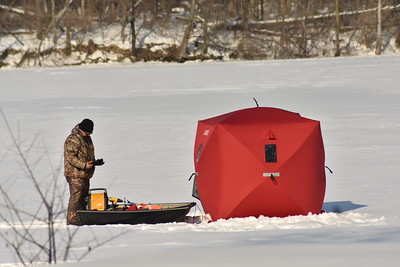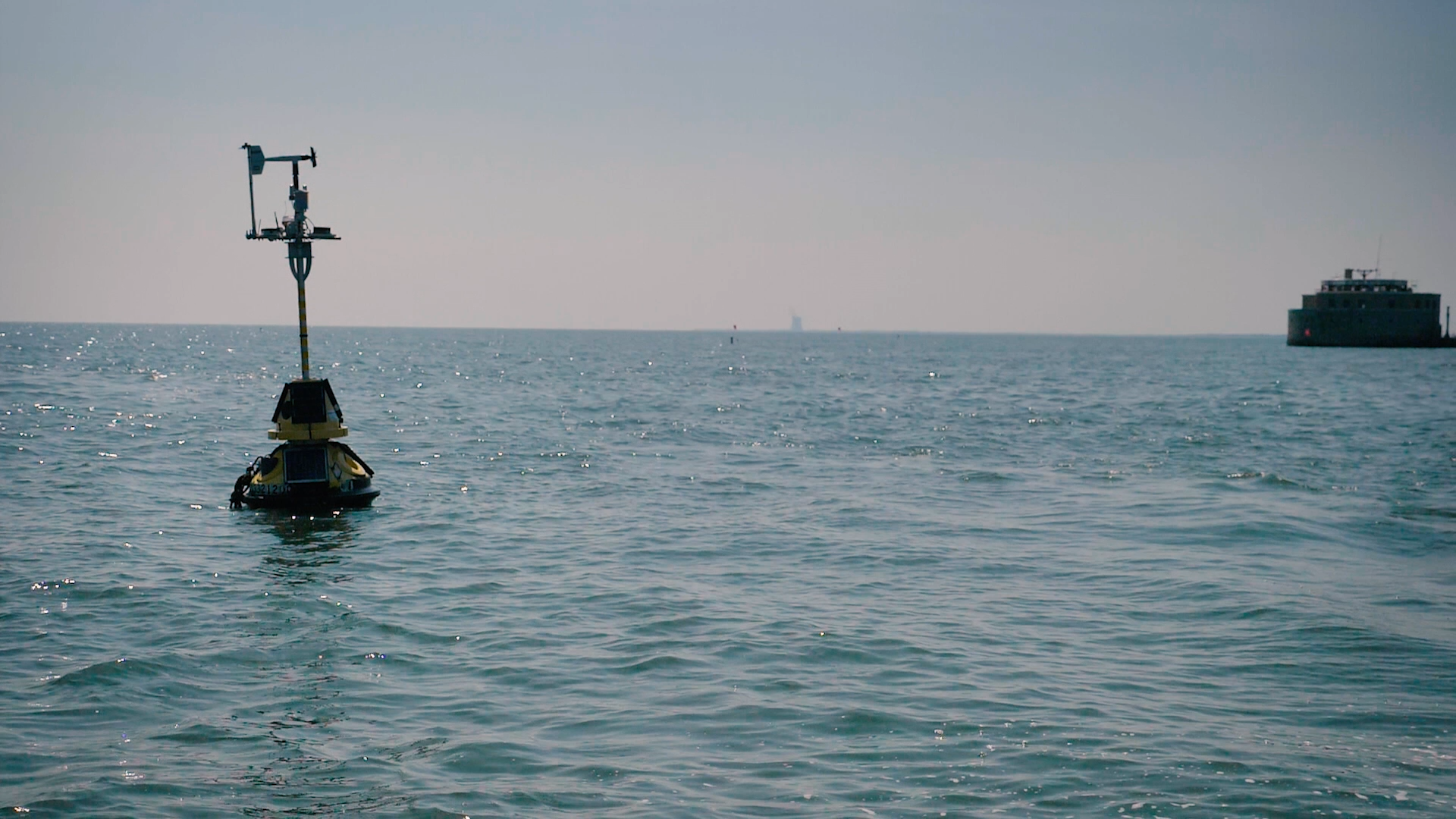
Lake Ontario broke a record this July for hottest surface water temperature ever recorded on the lake since 1995.
Lake Ontario isn’t alone. All five of the Great Lakes’ surface water temperatures are still above their 1995-2020 averages as of Aug. 21, according to NOAA Great Lakes CoastWatch.
According to air temperature predictions made by NOAA Weather Service, above normal air temperatures during the rest of August and September could potentially translate to continued high surface temperatures in the Great Lakes for the rest of summer.
The most staggering representation of these increased temperatures comes from Lake Ontario, which reached 76.928 degrees Fahrenheit on July 10. That is 9.72 degrees above the average temperature for July 10 from 1995 to 2020 and constitutes the warmest surface water temperature ever recorded on Lake Ontario, according to NOAA CoastWatch data. The surface water temperature of Lake Ontario continues to remain above average, having hit 73.814 degrees Fahrenheit on Aug. 20.
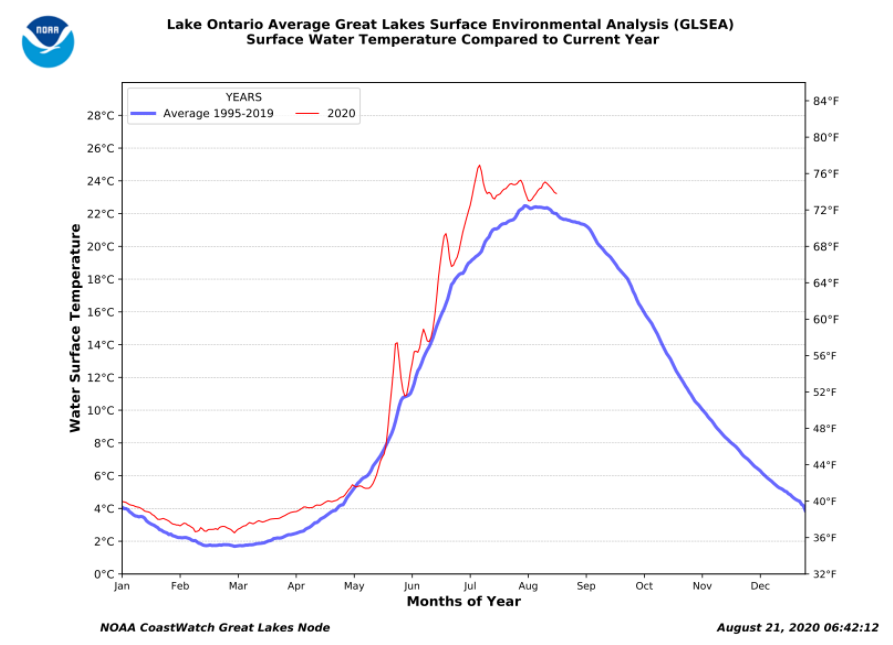
Lake Ontario average surface water temperatures (NOAA CoastWatch)
These high water temperatures are mainly caused by persistent warm weather along with light winds.
“Climate change is clearly affecting the Great Lakes,” Andrea Vanderwoude, manager of the Great Lakes CoastWatch, said in an email. “This particular warming is consistent with the larger warming that is occurring.”
According to Vanderwoude, these warmer temperatures in the Great Lakes could translate to different types of phytoplankton and cyanobacteria increasing in biomass and a potential increase in harmful algae blooms, depending on nutrient availability.
She also emphasized that the warmer water can influence food web dynamics, with fish species that prefer colder temperatures seeking deeper, cooler water.
Drew Gronewold, hydrologist and associate professor with the University of Michigan’s School for Environment and Sustainability, noted that from a hydrologic perspective, temperatures at the surface of the lakes can heat up very quickly when there’s a heatwave. Depending on the circulation patterns of the lakes, they can absorb the additional heat at the surface and become cool again.
More heat waves are to be expected in the region this summer, with both the National Weather Service in Grand Rapids and Detroit forecasting increasing high temperatures over the course of the next week.
Rather hot and dry weather is forecast for our area through the next week! High temperatures will reach the middle 80’s to near 90 degrees from Friday through at least next Wednesday. The next chance for rain of any significance will not come until late next week. #wmiwx #miwx pic.twitter.com/QTK1cL0qkn
— NWS Grand Rapids (@NWSGrandRapids) August 20, 2020
“The biggest concern that I have is if we have extremely cold and dry air in the fall, that can really exacerbate evaporation,” Gronewold said. “If the lakes are absorbing all this heat right now, and we get cold blasts of air in October, November and December that’s dry, we could actually have water levels go down quite a bit, which is what’s happened in the past.”
The consequence Gronewold explained above is known as lake effect snow, which occurs when air that crosses the lakes is colder than the water.
Whether the warming trend will hold remains to be seen. The temperatures generally cooled down a bit in early August, but have since risen as of Aug. 21. The lakes’ surface water temperatures could continue to stay above their 1995-2020 averages as we prepare for hotter than normal air temperatures throughout the rest of August and September.
Read more stories on climate change on Great Lakes Now:
One key solution to the world’s climate woes? Canada’s natural landscapes
A vacant lot in Gary, Indiana, will soon be home to a climate-friendly community
From Rust to Resilience: Climate change brings new challenges and opportunities
API key not valid. Please pass a valid API key.Featured image: Lake Erie (Great Lakes Now Episode 1013)
1 Comment
-
The lakes have been way below average in temp from 2014 to 2019 and that’s why they are up ~6 feet in that time span. So a year of above-average evaporation would be welcome to lower the lakes a little and prevent more beach erosion.


